#HowIKibou with Broadway-bound Composer Matt Gould
Let’s be honest, we care a lot about who you are, but your kids are so insanely cute, can we start with a bit about them?
I take no credit for how cute my kids are as they’re adopted and I have nothing to do with their genetic make-up. But aside from the looks, Galileo (4 almost 5) and Apollo (2 and a half) are the sweetest humans I’ve ever known in my life…and I hope I get at least partial credit for that. Galileo is curious and asks endless questions about everything (his nickname is NPR because he’s always reporting on whatever given thing is in front of him) and Apollo only wants things HIS way. He’s a Leo and fully living up to this zodiac sign. 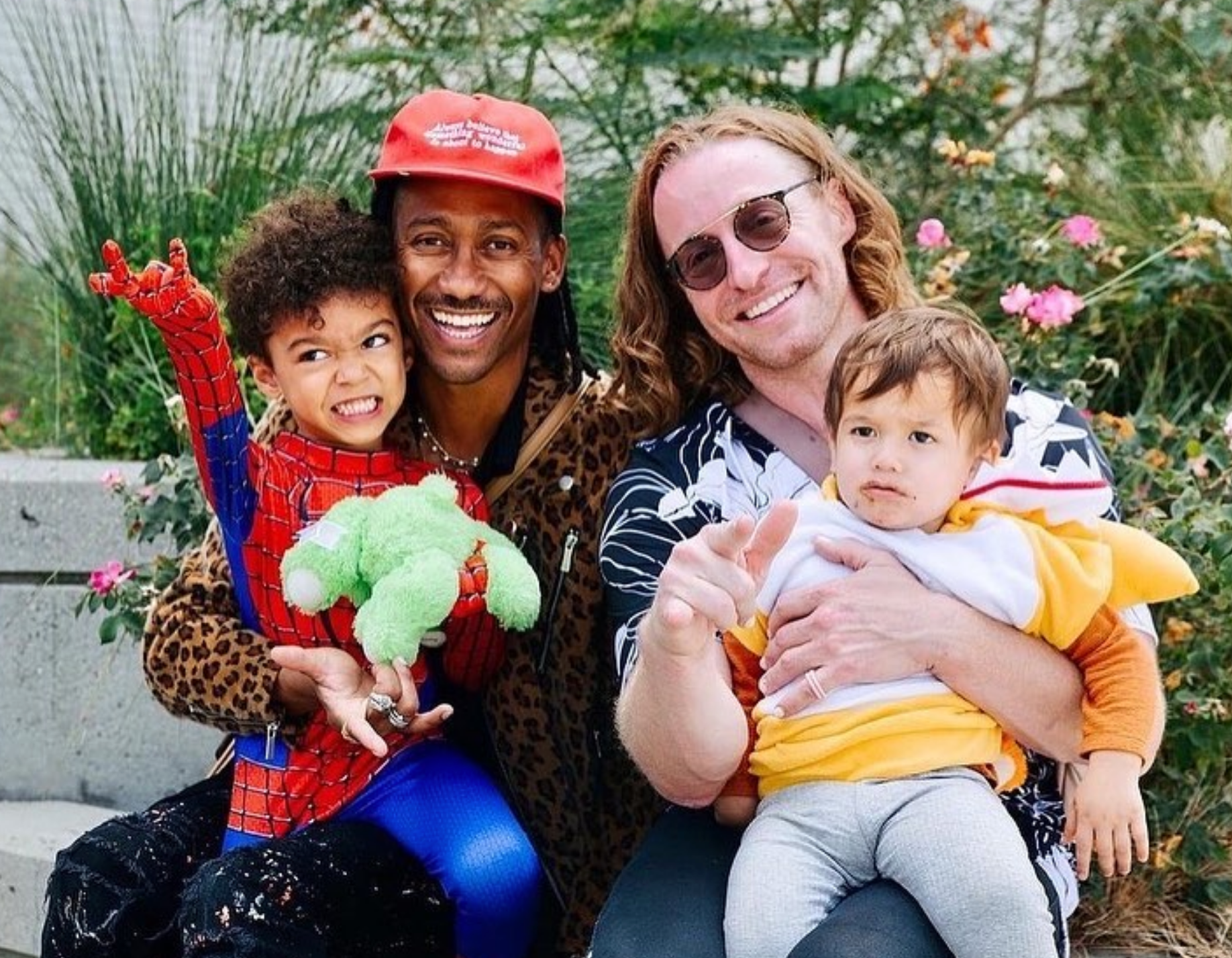
You and your husband Griffin Matthews officially adopted Galileo and Apollo on August 1, but you fostered both of them from the day they were born. Can you talk more about that process? How does it work and what should prospective foster/adoptive parents know?
Both of our kids came to us as foster kids straight from the hospital. With Galileo, we’d finished our foster training on a Friday morning. The social worker told us it would be a couple months before we’d get a call about a baby. Three hours later, while Griffin was at happy hour, the social worker called and said, “We have a baby. Are you ready?” I said, “No, but we’ll be there.” It was a long, arduous four years of a lot of drama with covid and the county…but the day of the adoption I wept constantly. It was such a relief. With Apollo, I was sure I didn’t want another baby. But the social worker was desperate for a placement. And it turned out Apollo was born on the exact day that our family dog, Patrick, passed away. Griffin and I both knew that it was meant to be. His adoption–the same day as Galileo–took a year and a half and was totally not dramatic. I still wept!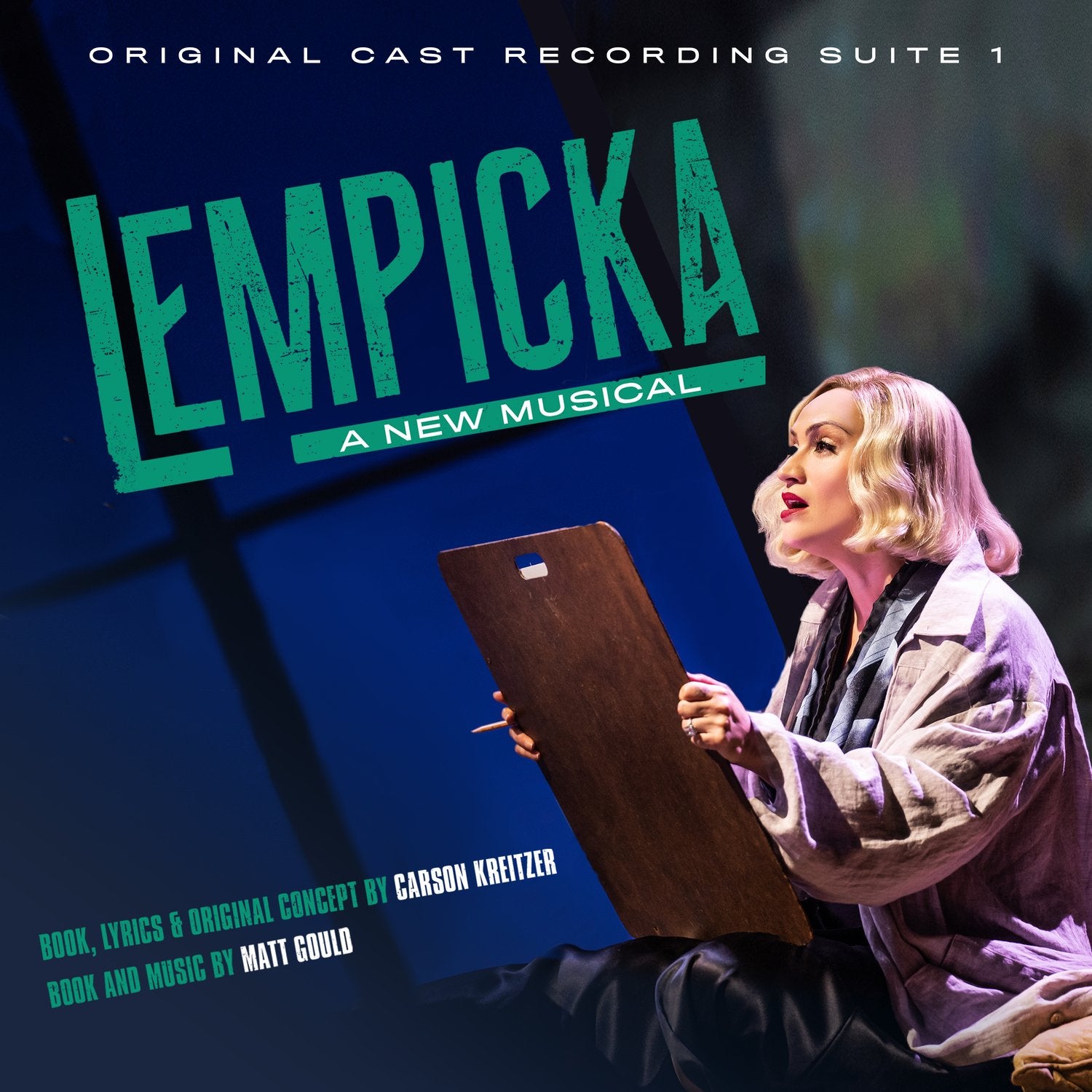
On the topic of your family, as a composer you just wrapped a super successful run of Lempicka at La Jolla Playhouse and Griffin is a crazy busy actor. How do you two manage the travel schedules alongside the demands of two little guys (and a coup full of chickens!)?
We manage like all parents do. We take turns. We don’t sleep. We eat a lot of uneaten cold chicken nuggets and sometimes, we spend half a day watching cocomelon, which, for the record, is unbearable. It’s actually totally insane that we live in a culture that doesn’t really value the idea of living in a village or a community. As a peace corps volunteer in Mauritania, West Africa, I was always struck by how much raising children was a communal effort. Here, we put insane expectations on ourselves that I don’t believe are in any of our best interests. I see us living abroad at some point. In the meantime…lots of childcare, meditation, and strapping kids on our backs and doing what we gotta do!
Your Instagram is full of heartfelt, witty, beautiful, thought-provoking ruminations and songs–some seemingly off-the-cuff and others compositional masterpieces. Can you talk about the songwriting process? How do you go about writing a song for a musical?
How to write a song for a musical…ultimately, in a play/musical, a song must move the action forward. What that means is that the character or characters singing the song must somehow be different at the end of the song than they were at the beginning of the song. This is different from a pop song or folk song which can simply be a rumination on an idea or a theme. In musicals, it’s about the story. So writing that kind of song means figuring out the literal mechanics of how a person is changing…what the thought process is…what the various steps are in getting the character from point A to point B, and then getting into the muck of actually putting that puzzle together. It’s a messy process, but when you get it right, it’s deeply gratifying. 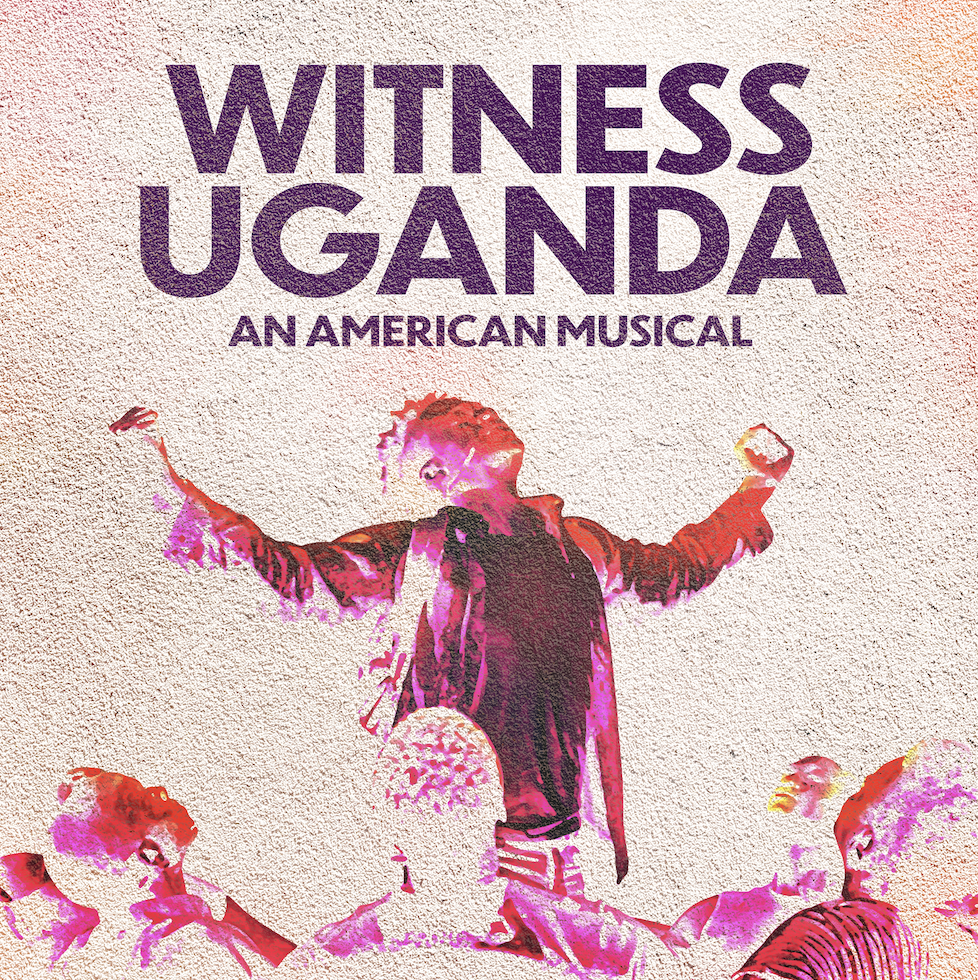
Lempicka isn’t the only musical you’ve composed. I’ve had the great privilege of seeing Witness Uganda in various stages from readings to full-blown, knock-your-actual-socks-off stage musical. The music from both is just POWER. And both of these have been in the making for years. How do you decide what stories you want to tell, and how do you know when they’re done?
The great and terrible thing about theater is that it’s never done. It’s always in process…it’s live…it’s happening now. Richard Rodgers was known to say that the musical is done on opening night. That basically means that you stop writing it when you’re forced to put your pen down. Witness Uganda was about a 12 year process from inception to pens down. Lempicka has been about the same. For me, stories worth writing are the ones that keep me up at night. I’m drawn to characters who don’t fit in the boxes that society assigns to them and that must figure out how to navigate life against the backdrop of giant cultural upheaval that puts their safety at risk. Often, my characters are gay or bi or queer and are trying to figure out how to live and thrive in a world that doesn’t want them.
How does that change once a show is picked up and producers get involved?
A producer’s job is to market and pay for a show. It’s a big, important job as shows on Broadway can cost upwards of $14 million simply to open. Often, a producer’s creative input has to do with how we get a show to a point where we can fill 8000-10000 seats a week. That’s what it takes to keep a show profitable. Sometimes that can mean things as innocuous as “the show is too long for most audiences. We need to cut 20 minutes.” Or, “I don’t understand what THAT character’s journey is. Can you clarify that so that people aren’t confused.” Musical theater is an intrinsically collaborative artform. And I often like working with producers when they’re good at what they do.
And speaking of getting picked up, what does it take to get picked up on Broadway? (We know Lempicka is being considered and we’re just trying to figure out how soon we get to see you on the big stage!)
Getting to Broadway is a mix of having a great product (or a big star or a well known property), the ability to raise many millions of dollars, getting a theater owner (there are only 40 theaters on Broadway and they’re only owned by three people. Roughly half of those theaters can house a musical and of those, only a handful aren’t already leased out to the long running shows like Chicago and The Lion King) to agree to give a house. It is a political shit show that requires a lot of patience and, frankly, a little bit of luck.
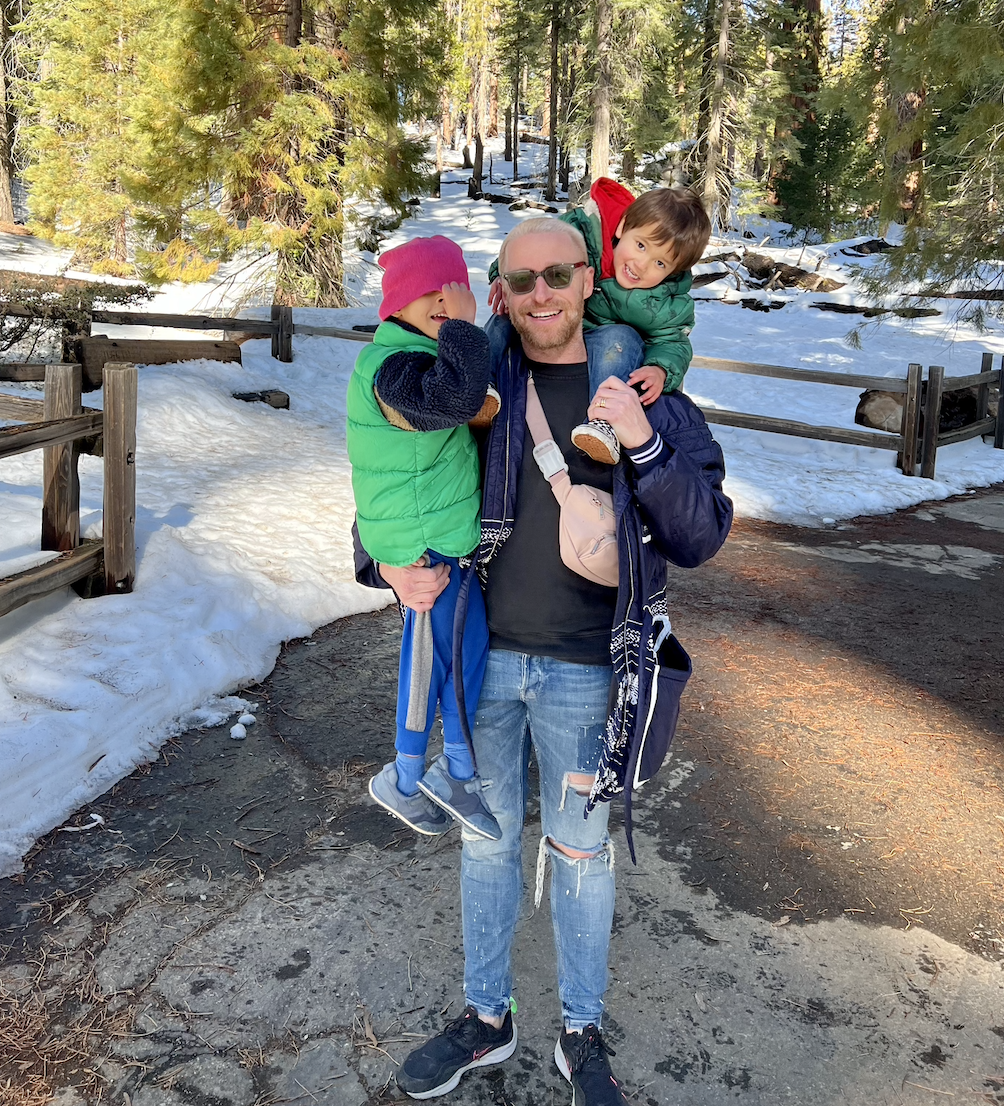
How does your own identity play a part in the stories you choose to tell?
I think most of the stories I write are about ME. Queer folks. Folks trying to find a community. Folks who feel like they don’t always belong in the communities they’re born into. Folks making family and life in unconventional ways. I’m currently developing a musical TV show about an interracial gay couple that fosters children and the white guy is a musical theater composer. I mean…me much?
Talk to us about working with your husband–he, the center of the story and main role in Witness Uganda, and you, the composer and musical director. In what is already a high-stakes, high pressure situation, how do you navigate that and still want to sit on the couch together at the end of a day?
Griff and I work together very well. We’ve been working together as long as we’ve been together. There aren’t actually many folks whose eye and sensibility I trust more than his. But like all relationships, it’s a constant practice of communication, kindness, patience, and love. The truth is that we fail at all of those practices often. But to me, life is about refining the practice and trying to get better over time. We’re all messy. And we’re trying to get closer to being less messy.
Covid was impossibly hard on so many levels. How did Covid impact theater and your work as a composer? Silver linings?
My show Lempicka was a week away from starting rehearsal when covid shut things down in 2020. It sucked. And also, I realized as time went on and I had more time to think about the show that we weren’t ready. So we had two more years to rewrite, rework, and reconceive the show. Like most things in life, time and perspective gave me a chance to get closer to the truth and authenticity of what I wanted to write.
Broadway Advocacy Coalition and other organizations work to combat systemic racism in theater. What is the current state of Broadway and what still needs to change?
Broadway engages in many racist practices. So does the United States government. So does the world. There are many folks working to recondition all of us to see things in ways other than the ways we were taught as kids. But it’s going to take a lifetime. And then another. I do feel optimistic that as time goes on and more of us become more aware of the systematic ways that certain people benefit and others don’t; and more of us become more willing to listen and learn and change; that we evolve into a society that lives up to the ideals we espouse. Until then, we must continue to stay open to the reality that there are people living lives in the same world that we are who do not have access to the same privileges that we do.
Favorite musical (other than your own)... Sunday In The Park With George
Current show you’re binge watching… His Dark Materials
Windows down, music up you’re blasting… Rihanna
Favorite way to spend time with your boys… Cuddling at 5am when they either say, “daddy I’m hungry.” Or “daddy I have to poop.” Also hiking and looking for dinosaurs.
Favorite chicken in the coup… Gigi, the little white one.
Dream musical you want to make… it’s about whales and the ways they sing. It uses shadows and light to make creatures too big for a theater.
If you weren’t a composer, you’d be a… a teacher.
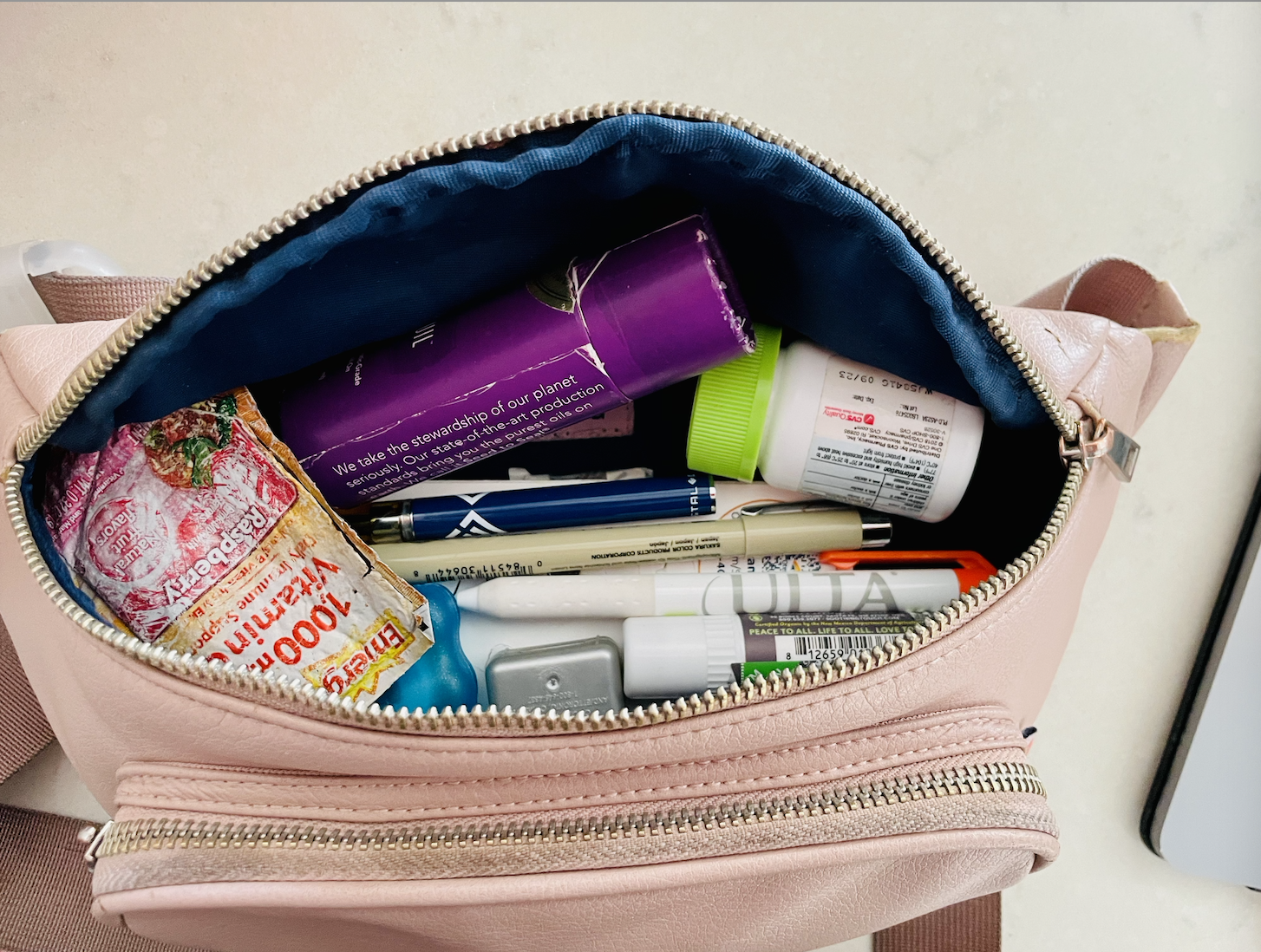
And lastly we gotta ask: what’s in your Kibou?
Fuck. Money, diaper, pen (not the kind that writes), allergy pills, three chapsticks, oh my god, more drugs, three kinds of floss, an old Emegen-C, I did remove a few things for the photo cause there’s some stuff you don’t need to see:)




